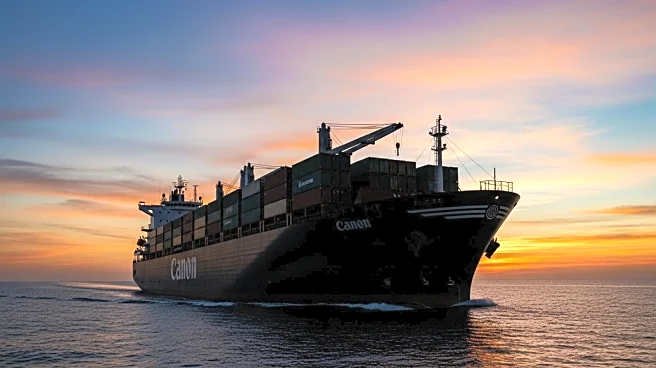What is the story about?
What's Happening?
Mitsui O.S.K. Lines (MOL) has initiated the first biofuel-powered voyage of its capesize bulk carrier Lambert Maru, carrying cargo for Anglo American. The vessel, measuring 292 meters in length with a deadweight tonnage of 180,432 MT, loaded the biofuel in Singapore on September 14. This voyage is part of MOL's 'Blue Action Net-Zero Alliance' program, aiming for net-zero emissions in maritime transport. The biofuel blend used is certified under the International Sustainability & Carbon Certification (ISCC-EU), consisting of 30% biomass, such as waste cooking oil, expected to reduce carbon emissions by 30% compared to conventional fuels.
Why It's Important?
The use of biofuel in maritime transport represents a significant step towards reducing greenhouse gas emissions in the shipping industry. MOL's initiative aligns with global efforts to transition to cleaner energy sources, offering a viable alternative to fossil fuels. This move not only supports environmental sustainability but also enhances the company's reputation as a leader in green shipping practices. The successful implementation of biofuel voyages could encourage other shipping companies to adopt similar strategies, potentially leading to widespread industry changes.
What's Next?
MOL plans to continue expanding the use of clean fuels as part of its BLUE ACTION 2035 environmental strategy. The success of this voyage may lead to increased adoption of biofuels across its fleet, further reducing emissions. Additionally, the digital certification of GHG reduction values could become a standard practice, providing transparency and accountability in environmental initiatives. Stakeholders, including Anglo American, may benefit from reduced carbon footprints and enhanced sustainability credentials.

















